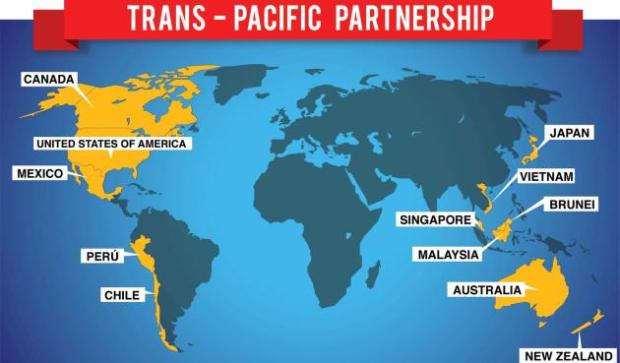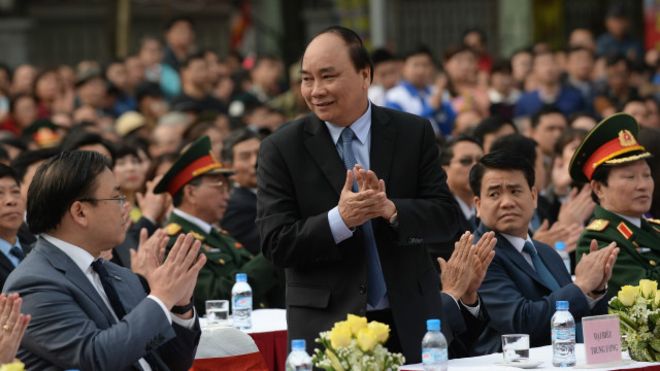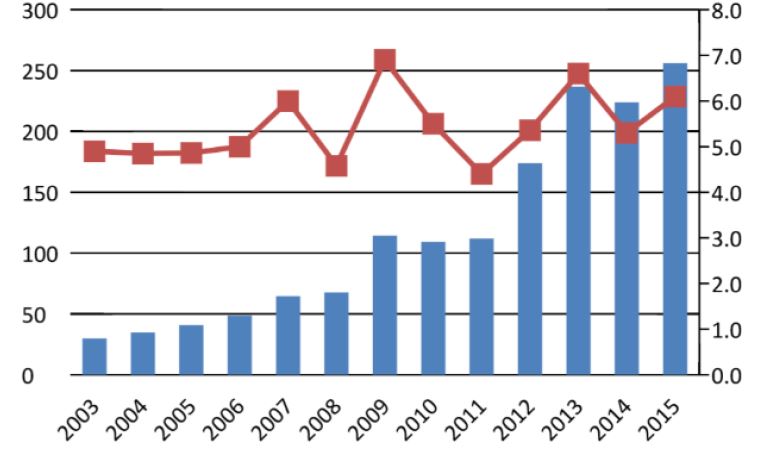[ISEAS Perspective] Over the past 30 years, the restructuring of state-owned enterprises (SOEs) has been a key component of Vietnam’s economic reforms under Doi Moi. Nevertheless, it remains largely a work in progress. Following the collapse of such major SOEs as Vinashin and Vinalines which had devastating impact on the economy, SOE reform has since 2011 resurfaced as an urgent task for the country. Continue reading “Vietnam’s New Wave of SOE Equitization: Drivers and Implications”
Category: Vietnam economy
Reviewing Vietnam’s Economic Reforms since the CPV’s Twelfth Congress
[ISEAS Perspective] Following the Communist Party of Vietnam’s (CPV) Twelfth Congress in January 2016, Vietnam’s National Assembly installed a new government led by Prime Minister Nguyen Xuan Phuc in April. His government will run the country at least until 2021 when a new government will be appointed after the CPV’s Thirteenth Congress. One of the major mandates of Mr Phuc and his government until then is to strengthen Vietnam’s economic performance, and to oversee its economic restructuring towards a more sustainable and innovative growth model. Continue reading “Reviewing Vietnam’s Economic Reforms since the CPV’s Twelfth Congress”
Growing Fiscal Deficit Presents a Major Risk for Vietnam
[ISEAS Perspective] Vietnam’s fiscal position has deteriorated rapidly in recent years. For example, its budget deficit in 2015 increased 14 per cent to reach 256 trillion dongs (US$11.47 billion), equivalent to 6.1 per cent of its GDP (CafeF, 2016). The country’s increasingly precarious fiscal position has been identified by experts as an urgent matter that can generate potential risks for its long-term macro-economic stability (see, for example, Financial Times, 2016; VnExpress, 2015b). It also poses a considerable challenge for Vietnam’s new government in achieving socio-economic targets set by the recent twelfth congress of the Communist Party of Vietnam (CPV). If the fiscal imbalance persists or worsens, it will generate serious economic, political and strategic implications for Vietnam. Solving or mitigating the problem, however, will require not only sound economic policies but also political determination to embrace challenging reforms on the part of the CPV. Continue reading “Growing Fiscal Deficit Presents a Major Risk for Vietnam”
Vietnam in 2015: Challenges Persist amidst Hope for Change
[Southeast Asian Affairs 2016] The year 2015 marked the eighty-fifth anniversary of the Communist Party of Vietnam (CPV) and the fortieth anniversary of Vietnam’s reunification under its rule. After almost thirty years of economic transformation, Vietnam has achieved considerable progress in terms of socio-economic development, but challenges to the country remain substantial as the economy has not regained full steam since the 2008–9 slowdown. Politically, the CPV has also been faced with a testing period. Its performance-based legitimacy has been undermined, while popular support declined due to widespread corruption as well as various socio-economic problems that cast doubts on the efficiency and accountability of the state and party systems. In terms of foreign policy, Beijing’s increasing assertiveness in the South China Sea presents a major challenge for the party. While seeking to maintain a peaceful relationship with its northern neighbour, Vietnam also needs to look into new options to deal with the rising China threat. Continue reading “Vietnam in 2015: Challenges Persist amidst Hope for Change”
Đánh giá sơ bộ tác động của TPP đối với Việt Nam

Nguồn: Lê Hồng Hiệp, “The TPP’s Impact on Vietnam: A Preliminary Assessment,” ISEAS Perspective, No. 63 Issue. 2015, 04/11/2015.
Biên dịch: Nguyễn Huy Hoàng
Dẫn nhập
Việc kết thúc đàm phán Hiệp định Đối tác Kinh tế Chiến lược xuyên Thái Bình Dương (TPP) hôm mùng 5 tháng 10 vừa qua đã được mười hai nước tham gia ca ngợi là một bước ngoặt đối với hội nhập kinh tế khu vực. Hiệp định này cũng được nhiều chuyên gia đánh giá là có tác động chiến lược sâu rộng trong cả khu vực cũng như toàn cầu. Là một thành viên của TPP, Việt Nam sẽ được hưởng lợi từ hiệp định này về cả mặt kinh tế và chiến lược, nhưng đồng thời cũng phải đối mặt với những thách thức đáng kể. Cách Việt Nam tận dụng cơ hội và xử lý thách thức có thể sẽ định hình quỹ đạo kinh tế, chính trị, và chiến lược của đất nước này trong những năm tới. Continue reading “Đánh giá sơ bộ tác động của TPP đối với Việt Nam”
The TPP’s Impact on Vietnam: A Preliminary Assessment

Source: Lê Hồng Hiệp, “The TPP’s Impact on Vietnam: A Preliminary Assessment,” ISEAS Perspective, No. 63 Issue. 2015, 04/11/2015.
INTRODUCTION
The conclusion of the Trans-Pacific Strategic Economic Partnership (TPP) Agreement negotiations on 5 October 2015 has been hailed by the twelve participating countries as a landmark for regional economic integration. The agreement is also seen by many experts as having far-reaching regional and global strategic implications. As a member of the TPP, Vietnam will stand to benefit from the agreement both economically and strategically, but the country will also be faced with considerable challenges. How Vietnam will capitalize upon the opportunities and handle the challenges may shape the country’s economic, political and strategic trajectory for years to come. Continue reading “The TPP’s Impact on Vietnam: A Preliminary Assessment”
Navigating the Crisis: The VCP’s Efforts to Restructure the Economy and Fight Corruption
[Southeast Asian Affairs 2013] This chapter focuses on the Vietnam Communist Party’s (VCP) efforts, especially in 2012, to promote its political legitimacy. In particular, the chapter will analyse Vietnam’s recent endeavours in restructuring the economy and intensifying its fight against corruption. These two measures have been adopted by the VCP as a major part of its wider response to the perceived decline in its performance-based legitimacy due to the country’s enduring socio-economic difficulties over the past few years. The chapter will argue that although both the economic restructuring and the fight against corruption have achieved certain progress, the actual results still leave much to be desired mainly because of the VCP’s unwillingness to embrace radical measures to reform the economy and to make its fight against corruption truly effective. As a result, although the two measures tend to help the VCP gain more popular support in the short term, whether or not they are sufficient to significantly improve the VCP’s political legitimacy in the long run is still unclear. Continue reading “Navigating the Crisis: The VCP’s Efforts to Restructure the Economy and Fight Corruption”
The Dominance of Chinese Engineering Contractors in Vietnam
[ISEAS Perspective 4/2013]
INTRODUCTION
Since bilateral normalization in 1991, Vietnam-China economic relations have been developing rapidly. One particular change is the dominant position in Vietnam that Chinese engineering contractors have managed to attain. According to China’s Ministry of Commerce (2010), Chinese engineering companies were by the end of 2009 involved in projects worth US$15.42 billion, turning the Vietnamese market into their largest in Southeast Asia. Various Vietnamese sources also confirm that these contractors are strongly outcompeting contractors from Japan, South Korea, and Western countries. On occasion, Chinese contractors have accounted for up to 90 per cent of EPC (Engineering/Procurement/Construction) contracts for thermal power plants in Vietnam (Nhat Minh, 2012). Continue reading “The Dominance of Chinese Engineering Contractors in Vietnam”



